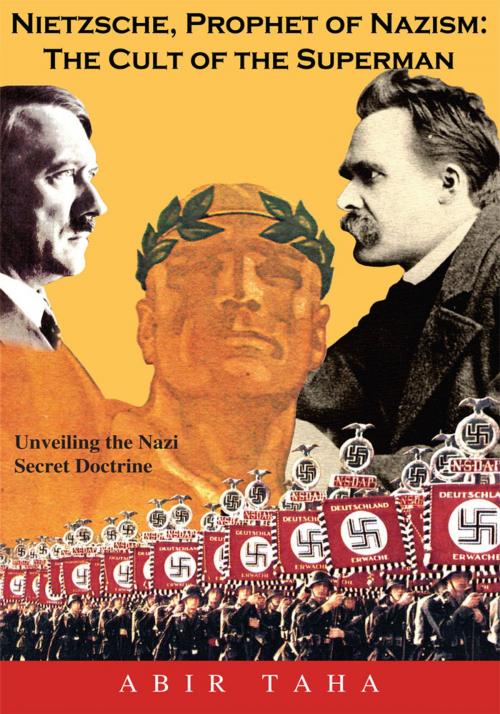Nietzsche, Prophet of Nazism : the Cult of the Superman; Unveiling the Nazi Secret Doctrine
Nonfiction, Religion & Spirituality, Philosophy, Social & Cultural Studies, Political Science| Author: | Abir Taha | ISBN: | 9781463494018 |
| Publisher: | AuthorHouse | Publication: | June 8, 2005 |
| Imprint: | AuthorHouse | Language: | English |
| Author: | Abir Taha |
| ISBN: | 9781463494018 |
| Publisher: | AuthorHouse |
| Publication: | June 8, 2005 |
| Imprint: | AuthorHouse |
| Language: | English |
The book deeply analyses Nietzsches influence on Nazi ideology, focusing on how the Nazis appropriated most of Nietzsches concepts and ideals to fit them into their own doctrine. Yet in doing so, the author draws a clear distinction between the Nazi esoteric doctrine, - which is elitist, supra-national, and spiritual -, and the popular, nationalist exoteric doctrine. She then endeavours to establish a clear link between the Nazi secret doctrine and Nietzsches philosophy, revealing both the occult character of Esoteric Nazism and the pagan Aryanism of Nietzsche.
The book has therefore a two-fold contribution: it unveils the Nazi esoteric doctrine, which the author claims is purely Nietzschean in character, and analyses Nietzsches philosophy in order to extract from it a clearly eugenicist, Aryanist dimension, thus establishing a clear link between the German philosophers thought and the Nazi Secret Doctrine. The author thus unveils both Nietzsches universal Aryanism as well as Nazisms esoteric doctrine.
This subject is of great interest to all those interested in a deeper understanding of the spiritual dimension of Nietzsches thought, as well as the occult nature of Nazism, and the relationship between these two doctrines. The book aims to end the controversy that is still ongoing today as regards Nietzsches relation to Nazism, by showing that the exoteric side of Nazism, which focuses on nationalism and biological racism, had little to do with Nietzsches elitist, universal and spiritual Aryanism, thus coming up with the conclusion that Nietzsches influence was essentially on the esoteric, spiritual, secret doctrine of Nazism.
The book deeply analyses Nietzsches influence on Nazi ideology, focusing on how the Nazis appropriated most of Nietzsches concepts and ideals to fit them into their own doctrine. Yet in doing so, the author draws a clear distinction between the Nazi esoteric doctrine, - which is elitist, supra-national, and spiritual -, and the popular, nationalist exoteric doctrine. She then endeavours to establish a clear link between the Nazi secret doctrine and Nietzsches philosophy, revealing both the occult character of Esoteric Nazism and the pagan Aryanism of Nietzsche.
The book has therefore a two-fold contribution: it unveils the Nazi esoteric doctrine, which the author claims is purely Nietzschean in character, and analyses Nietzsches philosophy in order to extract from it a clearly eugenicist, Aryanist dimension, thus establishing a clear link between the German philosophers thought and the Nazi Secret Doctrine. The author thus unveils both Nietzsches universal Aryanism as well as Nazisms esoteric doctrine.
This subject is of great interest to all those interested in a deeper understanding of the spiritual dimension of Nietzsches thought, as well as the occult nature of Nazism, and the relationship between these two doctrines. The book aims to end the controversy that is still ongoing today as regards Nietzsches relation to Nazism, by showing that the exoteric side of Nazism, which focuses on nationalism and biological racism, had little to do with Nietzsches elitist, universal and spiritual Aryanism, thus coming up with the conclusion that Nietzsches influence was essentially on the esoteric, spiritual, secret doctrine of Nazism.















